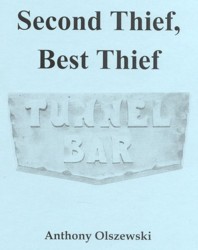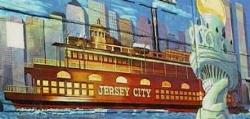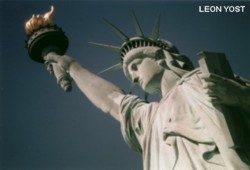 |  |  |
|
| ||
 |  |  |
 |  |  |
|
| ||
 |  |  |
|
|
|
The federal inquiry did not deter the cabal. Dolan related how he "asked Mr. Murphy if they were still following the same procedures, and he said, yes, he had received instructions from Mayor Whelan that the goodies had to keep rolling in."
Muss told of leaving $14,000 in payoff money in his room at Jersey City's Holiday Inn. When he returned to the motel, he found that someone in the cleanup crew had made off with the money. He had trouble raising so much cash again. "Flaherty came to me several times and emphasized that if we didn't ... our bills wouldn't be paid."
Stern could have continued the litany of payoffs for weeks. "There was a vast amount of evidence that we never used," he explains. "When you have a John J. Kenny or a Frank Manning get up and say that thirty firms paid them off and list their names, we had spoken with all those firms, because what if they had come in and said, `No, we didn't pay them'? But there's a judgment factor. When do you overprove a case? How many times do you slay the dragon? We had to call a halt somewhere. After all, we had a sequestered jury, locked up seven weeks, away from their homes, businesses and families." So he wrapped up his case with Frank Manning's testimony.
Manning was short, squat, his hair close-cropped. He told of being slowly sucked into the payoff conspiracy. He started out as Jersey City's chief engineer. He explained that, as a professional employee, John V. Kenny exempted him from the usual three-percent salary kickback, but Judge Shaw barred any mention of salary assessments from being heard by the jury, since such kickbacks weren't interstate commerce and were thus outside the court's jurisdiction. Kenny also exempted him from kicking back on his private engineering projects.
But after Manning withdrew from Gerard Engineering, the agreement no longer applied to the firm. Not only was Gerard required to kick back, Manning was assigned the chore of collecting the payoffs.
Later, when Murphy and John V. Kenny had a brief falling-out, Kenny asked Manning to handle collections on other Jersey City kickbacks.
"Did you agree to do it?" Stern asked.
"... Yes, Sir, I did."
". . Did you understand that you were becoming a bagman?"
". . . Yes, I did."
Stern didn't ask why Manning had agreed. But the defense did on cross-examination. Manning attributed his acquiescence to the Little Guy's "Napoleonic influence."
Manning collected from "all the contractors in that year or so where I was still with the city of Jersey City."
In 1966, Manning became county engineer, and his role as bagman on Jersey City projects was phased out. But he was quickly assigned to rake in the payoffs on county projects. When the money came in, he'd call John V. Kenny and inform the Little Guy that he had a "resolution" for him to look at-either a "city resolution" or a "county resolution." If it was "big money," it was a "lengthy resolution."
Manning told of delivering the first payoff to Kenny at his Terminal Industries office-$4800 in two envelopes. Kenny laid the envelopes on his desk and covered one with his hand. Then he called in Flaherty and handed him one envelope.
"This is your envelope from Gerard," he told the council president.
As soon as Flaherty left, Kenny called in Corrado and gave him the other envelope for delivery to Stapleton. "Tell him it's from Gerard."
All the city payoffs were handled in this manner, Manning said, but Flaherty had nothing to do with kickbacks on county work.
Manning related how he'd received the $20,000 payoff from Merrigan through Dolan in four fat envelopes. Kenny wasn't in, and Manning feared to leave so much money in his office overnight. He put the envelopes in his overcoat pocket. That night he had a dinner-and-theater date with his wife. When he checked his coat at Whyte's Restaurant in downtown Manhattan, he stuffed the money inside his shirt and kept it there while he ate dinner and sat through the show-"both very uncomfortably."
He corroborated earlier witnesses' testimony about specific payments and attempts to return money once the federal investigation started. He said he never kept any of the cash for himself but was rewarded with three engineering contracts worth $80,000, two of them from Stemkopf. When Wolfe became county chairman, he took over the chores of collection, and Manning finally got his wish-to get out of his role as bagman.
The engineer proved a tough nut for the defense. Murphy's lawyer, Robert Baime, asked him, "As of
1952, you became aware of kickbacks, is that so?"
"Yes, sir."
"So, from 1952, was that the first awareness you had of
kickbacks?"
"Yes, sir-other than salary kickbacks."
"Could I have that read back?" Stern asked. "I didn't
hear it."
It's an old lawyer's trick. Stern heard the answer, all
right-he just wanted to make sure the jury did, too.
"He heard it," Baime said.
"Read it back," the judge ordered.
The court stenographer read the answer. "I ask that it be stricken," Brown said.
"I ask that it be stricken, too, Your Honor," Baime
echoed.
"Motion denied," Judge Shaw ruled. "If you want to
frame your question so you describe a particular kind of
kickback, that is one thing. But when you refer to kickbacks
generally and the witness responded to that type of ques
tion, I will allow the answer to stand."
Thus, the forbidden subject finally came into evidence. The prosecution came to a close as Stern presented
bankers and brokers to testify about Whelan's and Flaherty's
Florida bank accounts and Kenny's bond purchases. The
government rested on June 22.

|
|
| 08/18/2012 11:10 PM |
|
Computer Repair Blog XP Local Area Connection stuck at Acquiring Network Address |
 Your Ancestors' Story |
 Bruce Springsteen's Jersey Shore Rock Haven! |

|
UrbanTimes.com |